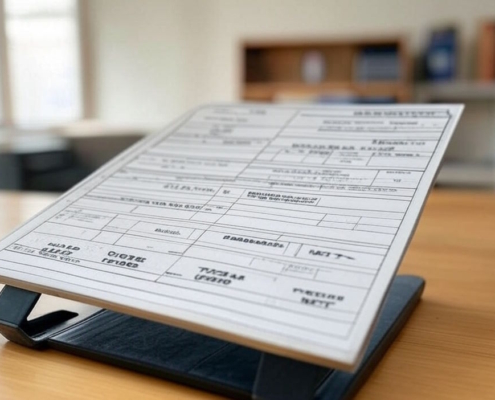
What Should Be Included in a Termination Letter in California?
A California termination letter should include the employee’s name, termination date, reason for dismissal, final pay details, and return of company property instructions. It should also mention any applicable severance, benefits continuation, and legal obligations like non-compete or confidentiality agreements.

What Are the Rules for Bereavement Leave in California?
California law mandates that employers with five or more employees provide eligible workers with five days of bereavement leave. This leave must be used within three months of a family member's passing, with confidentiality and anti-discrimination protections in place.

What Is the Borello Test? Worker Classification and Legal Implications
The Borello test helps businesses in California determine worker classification by assessing multiple factors related to control and independence. Despite the ABC test's implementation, the Borello test remains relevant for specific exemptions and legal considerations in worker status disputes.

How Does an EEOC Complaint Hurt an Employer?
An EEOC complaint can lead to legal costs, reputational damage, and increased scrutiny, even if an employer believes they followed regulations. Mishandling a complaint risks lawsuits, financial penalties, and long-term compliance challenges that impact business operations and workplace morale.

What Is the WARN Act in California?
California’s WARN Act requires employers to give 60 days’ notice before mass layoffs, relocations, or plant closures affecting 50 or more workers. Non-compliance results in penalties, including compensation for lost wages and benefits owed to affected employees.

What Is Self-Employment Tax and How Is It Calculated?
Self-employment tax covers Social Security and Medicare at 15.3% on net earnings exceeding $400, with deductions reducing taxable income. Payments are made quarterly, and half the tax is deductible, ensuring compliance with IRS regulations.

What Is Modified Adjusted Gross Income and How Is It Calculated?
Your modified adjusted gross income (MAGI) affects tax benefits, including IRA contributions and tax credits. Calculating MAGI requires adjusting AGI by adding back specific deductions.

How Long Is Maternity Leave in California, and What Are the Eligibility Criteria?
California offers up to seven months of maternity leave through various programs, including Pregnancy Disability Leave and Family Leave. Eligibility depends on employer size, job tenure, and medical certification for pregnancy-related disabilities.

What Information Should a Pay Stub Contain?
A pay stub details an employee’s earnings, deductions, and taxes, ensuring transparency in payroll. Employers must include key information to comply with regulations.

What Does Per Diem Mean in Employment Terms?
Per diem employment offers flexibility with daily compensation for temporary or on-demand work, commonly found in healthcare, education, and business travel. Unlike independent contractors, per diem employees receive wages subject to taxes but often lack benefits like health insurance.
